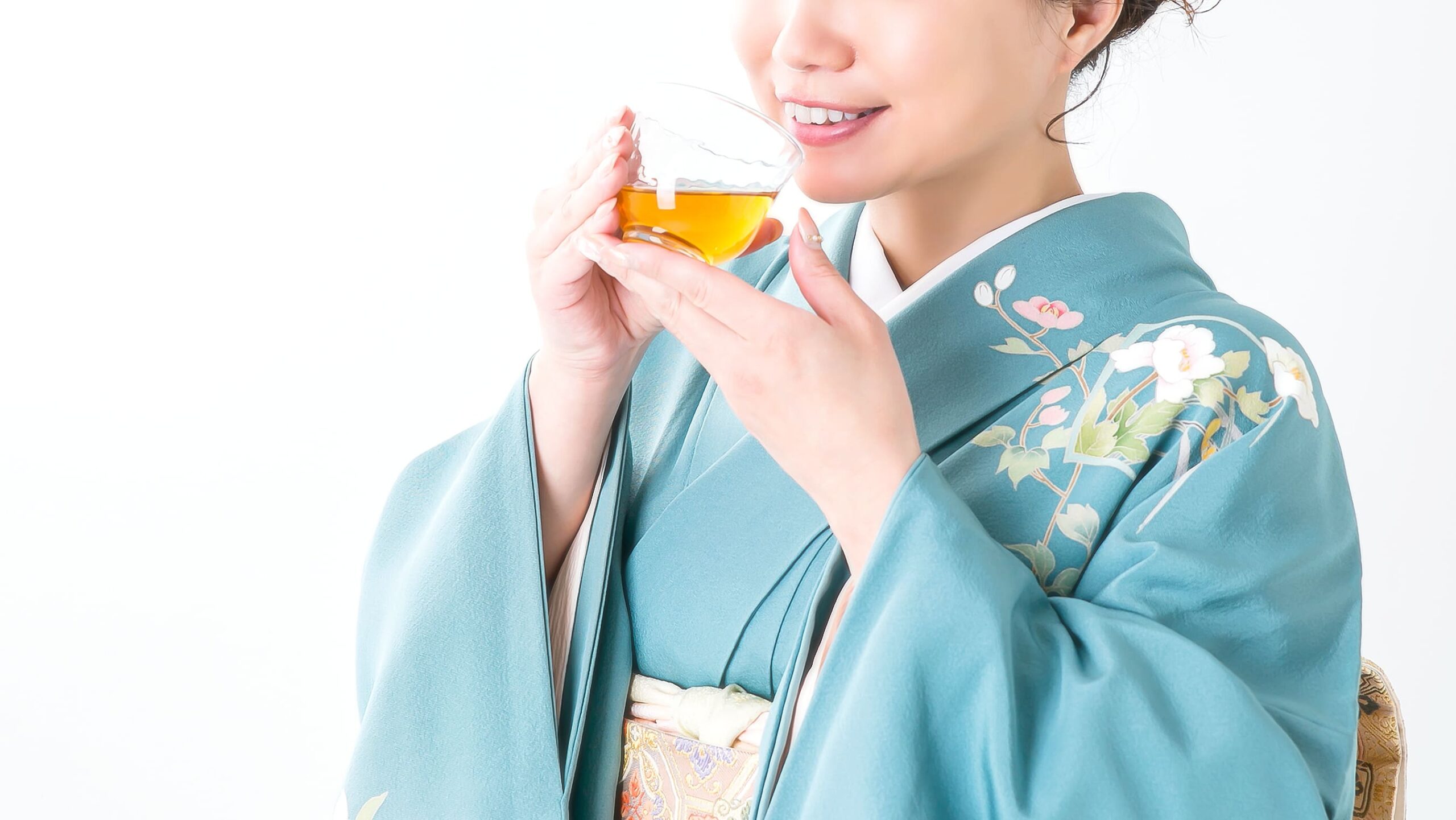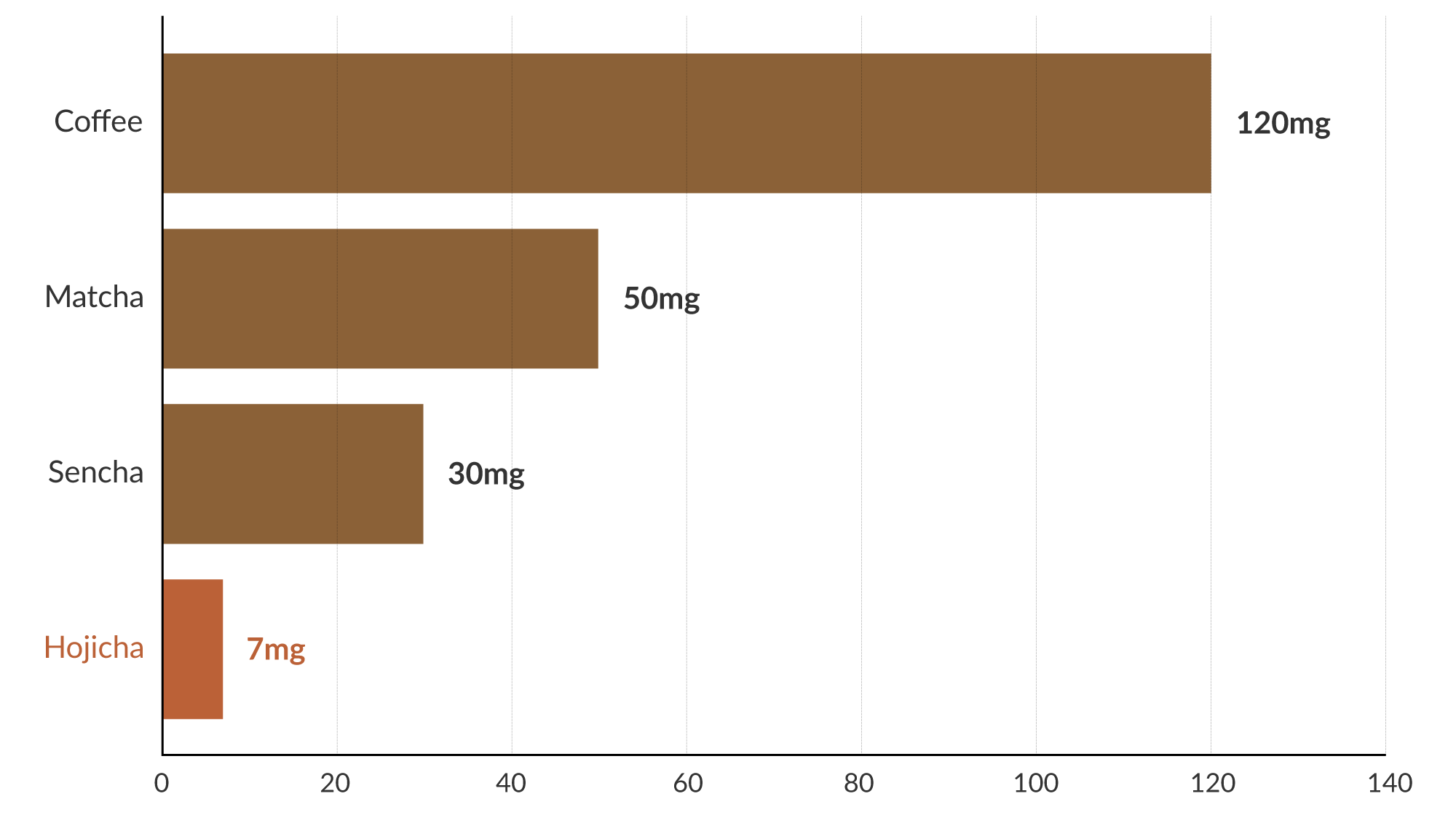


Hojicha, Japan’s cherished roasted green tea, continues to captivate tea lovers and wellness enthusiasts worldwide with its soothing aroma and mellow taste. Beyond its comforting warmth, this unique tea offers a wide range of science-backed health benefits that contribute to overall well-being. From antioxidant protection and heart health to stress relief and immune support, Hojicha stands out as a gentle yet powerful ally for a balanced lifestyle. In this article, we’ll explore nine surprising health benefits of Hojicha and discover how this roasted green tea can enhance both body and mind.
Hojicha is a powerhouse of antioxidants, despite its unique roasting process. The tea contains catechins, a type of antioxidant known for its ability to fight free radicals, reducing oxidative stress and preventing chronic diseases.
A study published in the Journal of Agricultural and Food Chemistry found that the roasting process of Hojicha alters the composition of catechins but does not significantly diminish their antioxidant properties. The researchers discovered that roasted green tea like Hojicha retains substantial amounts of epicatechin and epigallocatechin, which are potent antioxidants.
This deeper insight into Hojicha’s antioxidant capacity, as demonstrated by scientific research, reveals its potential role in promoting longevity and vitality, highlighting its beneficial impact on health beyond its soothing taste.

One of Hojicha’s most celebrated health benefits is its low caffeine content. Unlike most green teas, Hojicha’s roasting process significantly reduces its caffeine levels, making it a perfect evening drink.
Typically, a cup of green tea contains about 30-50 mg of caffeine, while a cup of coffee can range from 95-200 mg depending on the preparation. In contrast, Hojicha boasts a significantly lower caffeine content, with approximately 7-20 mg per cup. This dramatic reduction is a result of the high-temperature roasting process, which breaks down much of the caffeine.
The lower caffeine content in Hojicha promotes relaxation without the risk of disrupting sleep patterns, offering a soothing experience for those sensitive to caffeine or looking for a low-caffeine alternative to enjoy in the evenings.

Caffeine Content per 240ml
Hojicha may also play a role in supporting digestive health. The roasting process not only imparts a unique flavor but also helps in reducing the tea’s acidity, making it gentler on the stomach.
In Japan, it is a common practice to enjoy a cup of Hojicha after a meal, both for its soothing properties and its ability to aid in digestion. This tradition extends to Japanese restaurants worldwide, where Hojicha is often served post-dinner, providing a warm, comforting end to the dining experience.
Its gentle nature makes Hojicha a preferred choice for those seeking to calm their digestive system after eating. Moreover, anecdotal evidence from tea enthusiasts and health-conscious individuals outside of Japan suggests that incorporating Hojicha into one’s post-meal routine can help alleviate feelings of heaviness or bloating, making it a globally recognized aid for digestion.

A study published in the Journal of Nutritional Biochemistry highlights that the antioxidants found in green teas like Hojicha, specifically catechins, have been observed to lower LDL cholesterol levels—often referred to as ‘bad’ cholesterol—and improve the function of blood vessels.
This biochemical action helps in reducing arterial stiffness, a significant risk factor for heart disease and stroke. Moreover, these antioxidants are known to foster nitric oxide production in the body, which enhances blood flow and lowers blood pressure.
Through these mechanisms, Hojicha manifests as a heart-friendly beverage, contributing to the reduction of cardiovascular disease risks. The study’s findings present Hojicha not just as a beverage of delightful taste but also as a potential ally in maintaining heart health, making it a valuable addition to a heart-conscious diet.

The L-theanine found in Hojicha, an amino acid known for its relaxing properties, helps in reducing stress and improving mental clarity. The combination of low caffeine and high L-theanine in Hojicha provides a unique balance, enhancing concentration without the jitteriness associated with higher-caffeine teas.
Hojicha contains a significant amount of L-theanine, which is responsible for its calming effects. On average, a cup of Hojicha (approximately 240 ml) contains about 5-8 mg of L-theanine. This amino acid promotes relaxation and mental clarity, making Hojicha a great choice for those looking to reduce stress.
Hojicha is known for its low caffeine content, which makes it an excellent choice for an evening drink. Typically, a cup of Hojicha contains about 7-20 mg of caffeine. In comparison, a cup of Matcha contains approximately 30-70 mg of caffeine, while a cup of Sencha contains about 20-30 mg. The significantly lower caffeine content in Hojicha allows for relaxation without the risk of disrupting sleep patterns. For a detailed comparison between these teas, check out our posts: Hojicha vs Sencha: A Comparative Guide to Japan’s Beloved Green Teas and Hojicha vs Matcha: Which Tea is Right for You?.
To maximize Hojicha’s benefits for stress reduction and mental clarity, it is best to consume it in the afternoon or evening. This timing helps in winding down after a busy day and preparing for a restful night. Incorporating Hojicha into your evening routine can provide a soothing experience, aiding in relaxation and mental clarity without interfering with sleep. Discover why Hojicha is the perfect evening drink in our blog post Low-Caffeine Teas: Why Hojicha is a Perfect Evening Drink.

Hojicha’s potential role in weight management is another intriguing aspect. The tea’s unique properties can boost metabolism and assist in the breakdown of fats, making it a supportive beverage for those looking to manage their weight.
Hojicha contains catechins, a type of antioxidant that has been shown to enhance metabolic rate. Catechins, especially epigallocatechin gallate (EGCG), stimulate thermogenesis, the process by which the body generates heat by burning calories. This increased thermogenesis can help boost overall metabolic rate, making it easier to burn more calories throughout the day.
In addition to boosting metabolism, Hojicha helps in the breakdown of fats through a process known as lipolysis. The catechins in Hojicha activate enzymes responsible for breaking down stored fat in the body, releasing fatty acids that can be used as energy. This process helps reduce fat accumulation and supports overall weight management.

Hojicha is also known to benefit skin health, thanks to its potent antioxidants and anti-inflammatory properties. The catechins in Hojicha, particularly epigallocatechin (EGC), help protect skin cells from free radicals, which are a major factor in skin aging and damage. These antioxidants neutralize harmful molecules, supporting skin’s resilience against environmental stressors like UV rays and pollution.
Furthermore, Hojicha’s anti-inflammatory properties can soothe and calm irritated skin, reducing redness and potential acne flare-ups. The calming effects are especially beneficial for people with sensitive skin, as they help maintain a healthy skin barrier and minimize signs of inflammation. Incorporating Hojicha into your wellness routine not only boosts your internal health but can also promote a clearer, more radiant complexion, making it a valuable addition to a skincare-focused lifestyle. For more details, see our blog post “Hojicha for Skin Health: The Beauty Benefits of Roasted Green Tea.”

Hojicha’s abundant antioxidants and amino acids can play a key role in strengthening the immune system. Catechins and theanine—the main bioactive compounds in Hojicha—work together to enhance the body’s natural defense mechanisms. Catechins help neutralize free radicals and inhibit harmful bacteria, while theanine supports immune cell activity and overall stress reduction. Drinking Hojicha regularly, especially during seasonal changes, can help maintain wellness and resilience against colds and infections.

The catechins present in Hojicha are known for their antibacterial and anti-inflammatory effects, which can help improve oral hygiene. Studies on green tea catechins have shown they may inhibit the growth of bacteria responsible for plaque formation, tooth decay, and gum inflammation. While gentle on the palate, Hojicha’s natural compounds contribute to reducing oral bacteria and promoting fresher breath. Enjoying a cup of Hojicha after meals can not only aid digestion but also support a healthier mouth, making it a refreshing addition to your daily routine.

Exploring the health benefits of Hojicha reveals just how remarkable this roasted green tea truly is. Its rich antioxidants, low caffeine content, and natural compounds offer wide-ranging advantages—from supporting digestion and skin vitality to promoting heart, immune, and oral health. Whether you’re seeking a soothing evening drink, a wellness ingredient for your products, or a daily ritual for balanced living, Hojicha provides a perfect harmony of flavor and function. Experience the gentle power of Japan’s roasted green tea and make it a part of your wellness journey today.
We hope you found these health benefits of Hojicha enlightening! For those interested in learning more about the basics and history of Hojicha, don’t miss our comprehensive guide, Exploring Hojicha: A Toasty Twist on Traditional Green Tea.